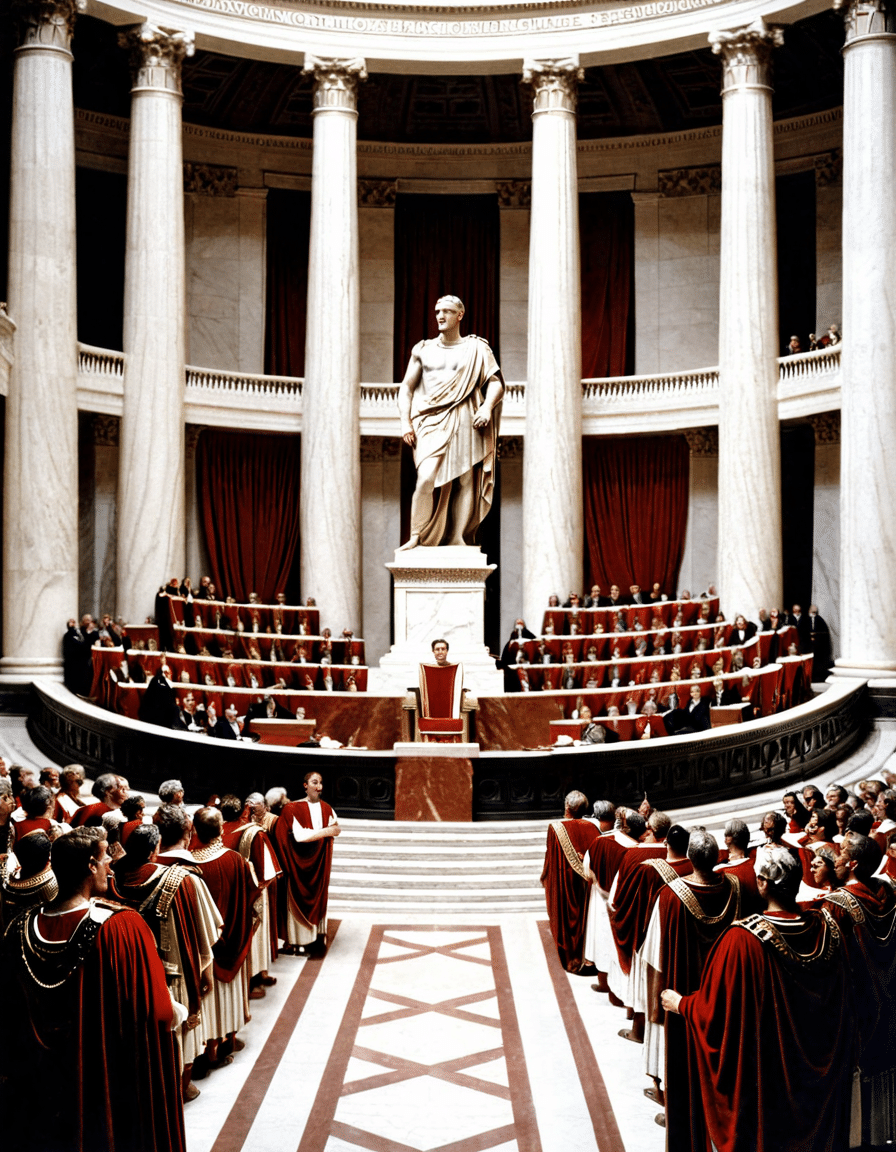When you think about powerful figures in history, Julius Caesar undoubtedly stands out. Known for his military prowess and political savvy, he wasn’t just a general; he was a visionary leader who transformed the Roman Republic. From his military campaigns that expanded Rome’s territories to the political games that garnered him wealth and influence, Caesar fully embodied ambition. His actions set the stage for the rise of the Roman Empire, and his legacy continues to intrigue us today. So, let’s dive into the ways in which Julius Caesar shaped history, led his people, and influenced leaders even in modern times!
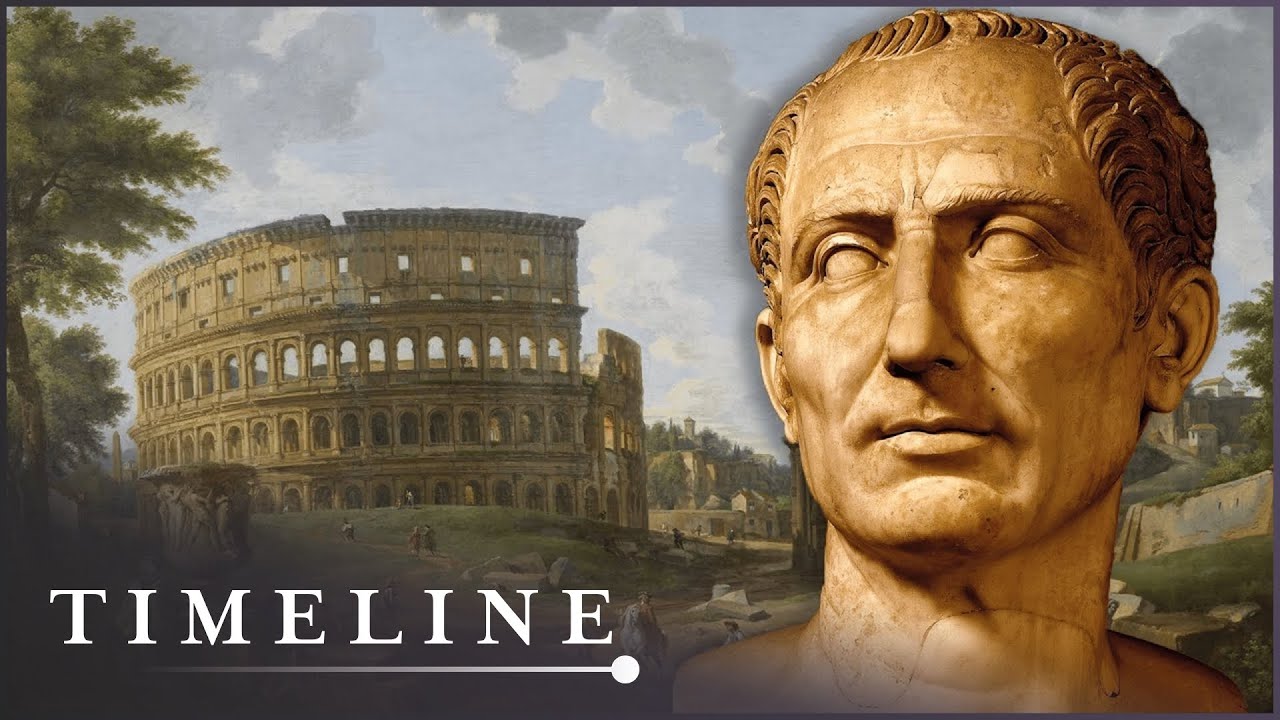
The Legacy of Julius Caesar: An Architect of Power
Julius Caesar wasn’t just interested in wearing a laurel wreath; he was more focused on changing the way power operated in Rome. By skillfully combining military force with astute political maneuvering, he laid the groundwork for an entire empire. And trust me, his strategies were worth taking notes on!
The excellence of his military campaigns, especially in Gaul, displayed strategic brilliance. Take the Siege of Alesia, for example. Against overwhelming odds, he managed to outsmart his enemies and bring home victory. It’s the stuff of action movies, folks! But military skills were only part of his toolkit. He also understood the significance of alliances, forming the First Triumvirate with Pompey and Crassus to bolster his influence.
Caesar’s reforms didn’t stop at the battlefield; he took on challenges back home as well. By introducing the Julian calendar, he improved administration in what was then a chaotic republic. These changes were revolutionary at their time and highlighted his vision of a more organized Rome. While the Senate may have been anxious about losing grip on their power, they loved the order Caesar’s reforms brought—at least until they didn’t!
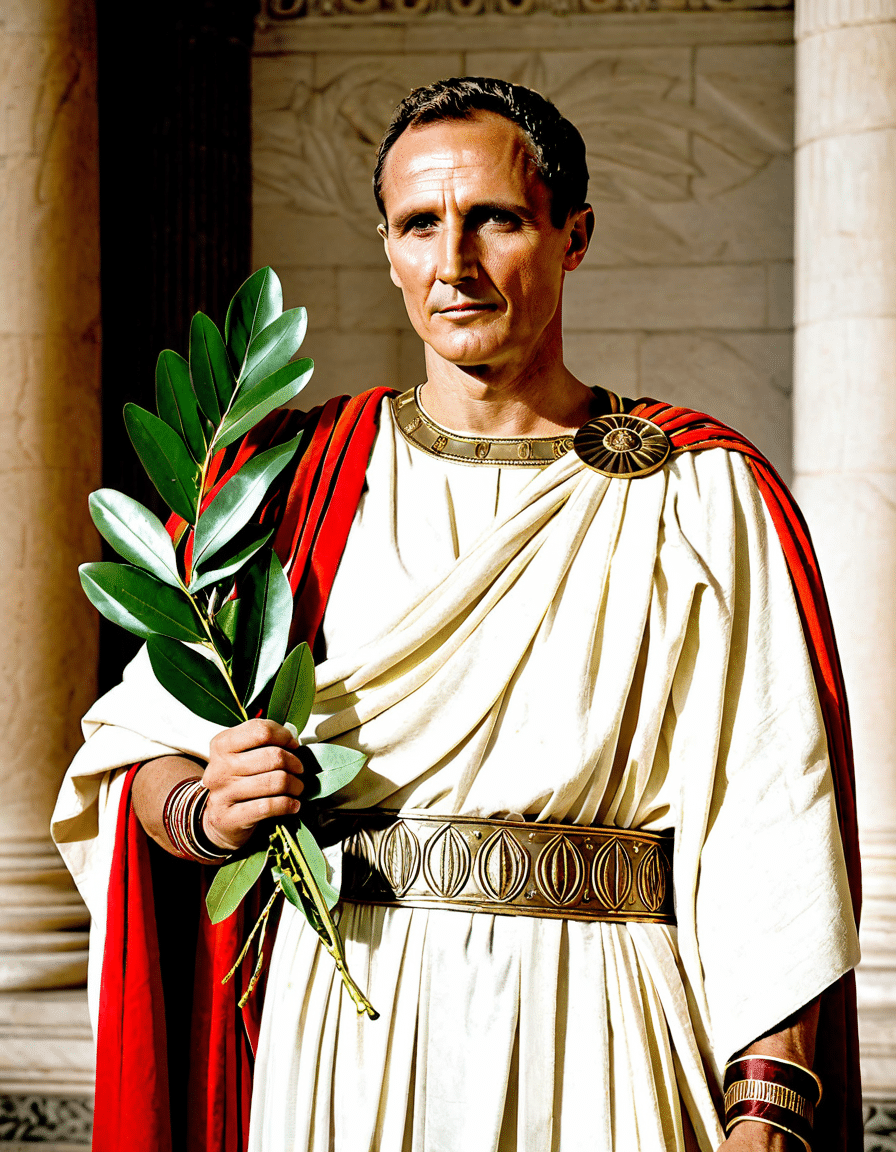
Top 7 Defining Traits of Julius Caesar’s Leadership Style
1. Strategic Military Acumen
Caesar’s tactics in battles, especially in Gaul, hold lessons even for today’s leaders. His adaptability to various combat situations set him apart. Imagine being in his shoes during the Siege of Alesia, where he faced a double-layered enemy attack. He turned what seemed like certain defeat into a glorious victory. That’s the kind of thinking that makes a leader!
2. Charismatic Communication
“Veni, Vidi, Vici” – those three words still resonate today. Caesar knew how to talk the talk. His speeches weren’t just filler; they were calls to arms, stirring both troops and everyday citizens. His ability to sway public opinion through charismatic communication remains a benchmark for leaders today.
3. Political Shrewdness
Caesar didn’t just take orders; he gave them. By forming the First Triumvirate, he found a way to gain power without rocking the boat too much. It gave him muscle without painting a huge target on his back – very savvy if you ask me!
4. Innovative Reforms
From the Julian calendar to debt relief for soldiers, his reforms were game-changers in Roman society. They didn’t just add layers of bureaucracy; they made life easier for many Romans. You may think of the Julian calendar as something mundane, but back then, it was like rolling out the first modern-day smartphone!
5. Visionary Ambition
Caesar’s ambition wasn’t a secret. He ultimately pushed to become dictator for life, a move as controversial as it was audacious. This ambition characterized his leadership but also stoked fears among his peers. A little power-hungry? Sure—but isn’t that what makes a leader unforgettable?
6. Cultural Patronage
Understanding that culture sways power, Caesar invested in literature and the arts. Aligning himself with major cultural figures like the poet Catullus, he shaped a Roman identity that, frankly, still intrigues historians and filmmakers alike!
7. Resilience in Exile and Conflict
Even when adversity struck, Caesar stood tall. His return to power after exile showcased his unwavering resolve. Who doesn’t love a comeback story? This resilience solidified his reputation as a leader who never backed down from challenges.
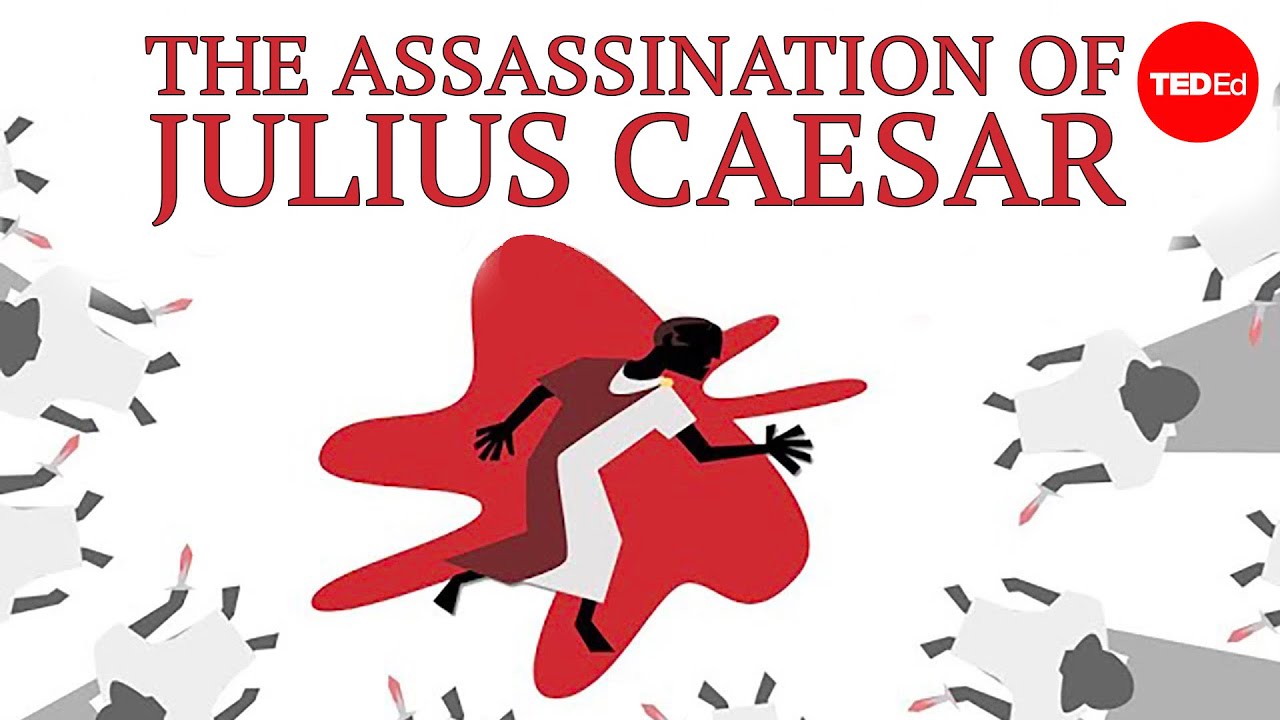
The Relationship Between Julius Caesar and the Senate
Oh, the Senate and Julius Caesar—talk about a complex relationship! Initially, he was a part of the esteemed Senate. But as he pursued reforms specifically benefiting the plebeians, tension brewed. Wouldn’t you know it, the traditionalists felt their grasp slipping. Caesar’s populist measures turned him from ally to enemy in the eyes of many senators.
The boiling point came on the Ides of March, a date forever etched in history due to his shocking assassination. Senators acted out of fear that Caesar’s ambition would undermine the Republic. This clash is a stark reminder of how leadership and governance can intricately intertwine—resulting in dramatic consequences. The tangled web woven between Caesar and the Senate highlights the delicate dance between progressive leadership and traditional power structures.
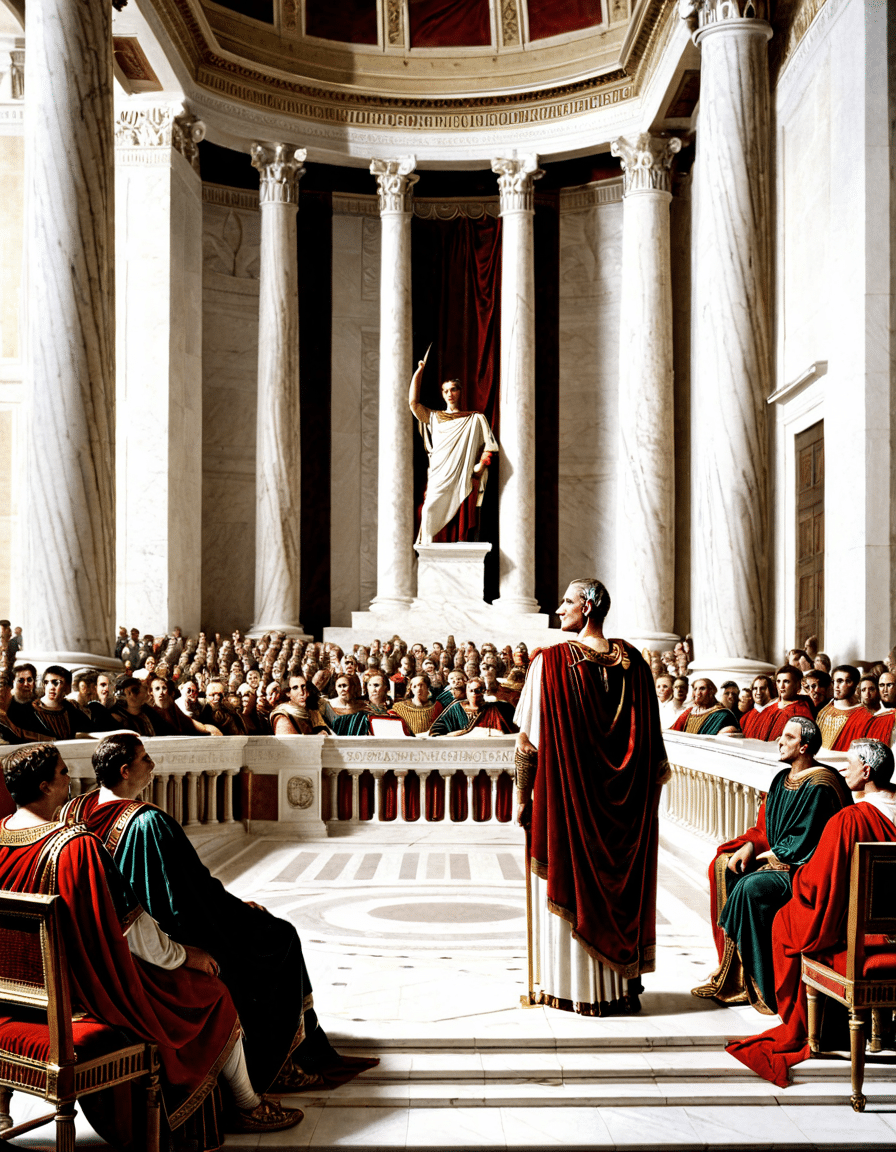
Modern Interpretations of Julius Caesar’s Leadership
Fast forward to 2026, and Julius Caesar’s leadership principles find relevance in various fields. Business leaders often invoke his methods to navigate their organizations. Just like Caesar adapted to battlefield conditions, modern CEOs like Satya Nadella at Microsoft adjust to competitive markets with strategic foresight.
Leadership programs frequently explore Caesar’s life, emphasizing qualities like resilience under pressure and an ability to make tough decisions. Maybe they even give a nod to his enduring legacy with examples of how his famed ambition can lead to success—or disaster!
While watching shows like Grace And Frankie, one might draw parallels to Caesar’s life. You know, navigating friendships, challenges, and ambitions (with a sprinkle of humor).
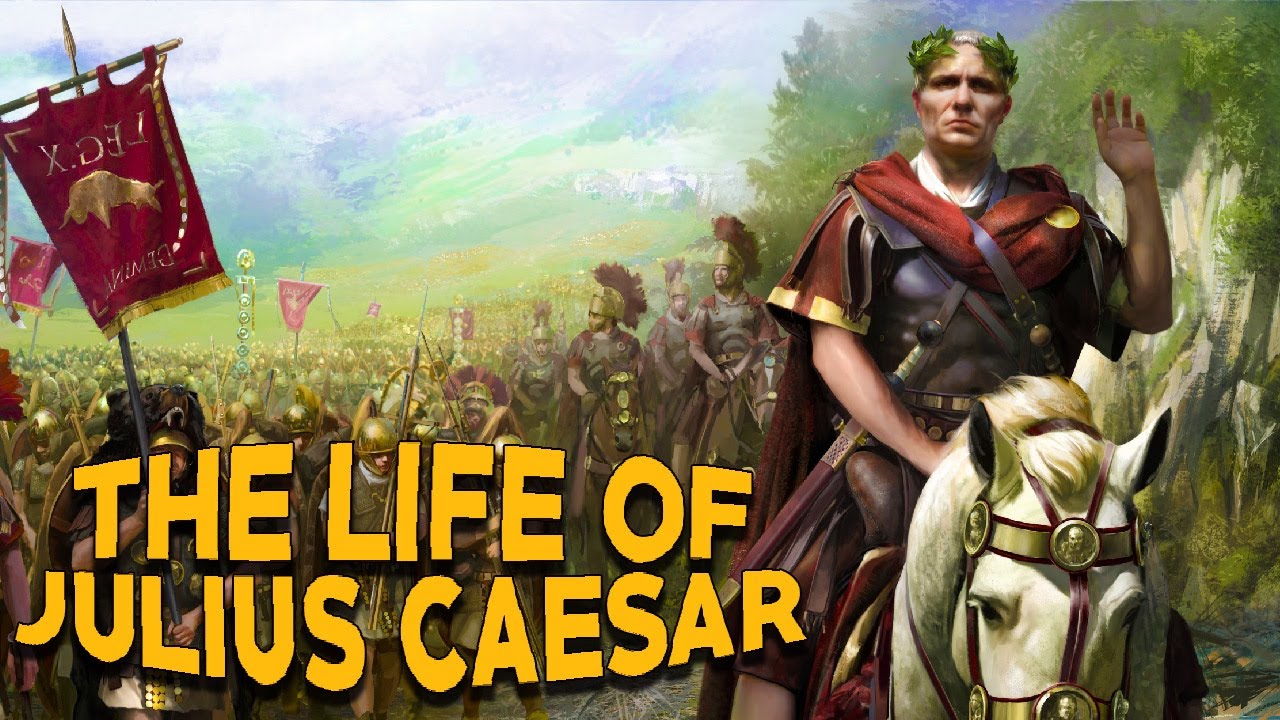
Caesar’s Enduring Influence on Leadership Today
Julius Caesar’s story teaches us a timeless lesson: leadership is as much about ambition as it is about ethics. The duality of his legacy highlights the necessary balance between visionary ideals and practical governance. He’s a case study in what happens when ambition crosses into the territory of unchecked power.
As leaders look back at Caesar’s life, they find deep insights that resonate today. His ambition reshaped Rome, proving that transformational leadership can lead to monumental change—but the consequences of sole ambition can also lead to imminent downfall.
In the end, whether you’re running a business or managing a team, remember the complexities of ambition that Julius Caesar navigated. Harness that lesson, and who knows? You might just carve your own legacy! Just maybe don’t run for “dictator for life.” That kind of ambition might get you on the wrong side of history—like assassins lurking in the shadows!
Whether in politics or business, Julius Caesar reminds us that with great ambition comes great responsibility. Let his story inspire you, but also caution you: it’s all about balance.
So, armed with Caesar’s lessons, go forth and lead—with wisdom, laughter, and perhaps a touch of dramatic flair!
Julius Caesar: The Ambitious Leader of Ancient Rome
A Leader Ahead of His Time
Julius Caesar was not just a military genius; he was a captivating figure whose life was filled with twists and turns that read like a thrilling novel. He famously crossed the Rubicon River, igniting a civil war that led to the end of the Roman Republic. This bold move resonates even today, akin to the strategies seen in anime, like the Naruto filler list, where every episode builds upon the character’s journey and decisions. Caesar’s ambition often puts him in the spotlight, but did you know he also dabbled in writing? His works, particularly “Commentarii de Bello Gallico,” provide insight into his campaigns and reflect his flair for drama and persuasion.
And speaking of decisiveness, Caesar’s close relationships show his versatility as a leader. He formed alliances through marriage, one notable instance being his affair with Cleopatra. This partnership was more than romance; it was political. Interestingly, the love stories of historical figures have modern-day counterparts, like those seen in shows such as Dom Perfect match, where the stakes of relationships are just as high. Plus, while his impact was monumental, it came with personal sacrifices—his ambition led to strained relationships, reminiscent of life’s challenges that people manage even today with effective stress management Techniques.
A Legacy of Invention and Influence
What makes Julius Caesar’s legacy even richer is how it intertwines with various aspects of culture and society long after his time. For instance, the Julian calendar, introduced by Caesar in 45 BC, laid the groundwork for modern calendars—we still use its format today! This innovation is just as essential as finding the right dining options, like those gluten-free restaurants near me for those with dietary needs. Moreover, Caesar’s impact on governance echoed through history, influencing figures like Benito Mussolini, who viewed the Roman era as a model for his regime.
Lastly, let’s not forget that Julius Caesar had a flair for the theatrical, famously declaring, “Veni, Vidi, Vici,” which translates to “I came, I saw, I conquered.” His life’s dramatic arc has inspired countless narratives, even in pop culture, invoking a sense of familiarity for those who belt out the Lyrics Of Misery business by Paramore, expressing bold attitudes akin to Caesar’s. Each of these facts highlights that his ambition remains relevant, echoing in today’s leadership styles and creative expressions, captivating audiences throughout generations.
